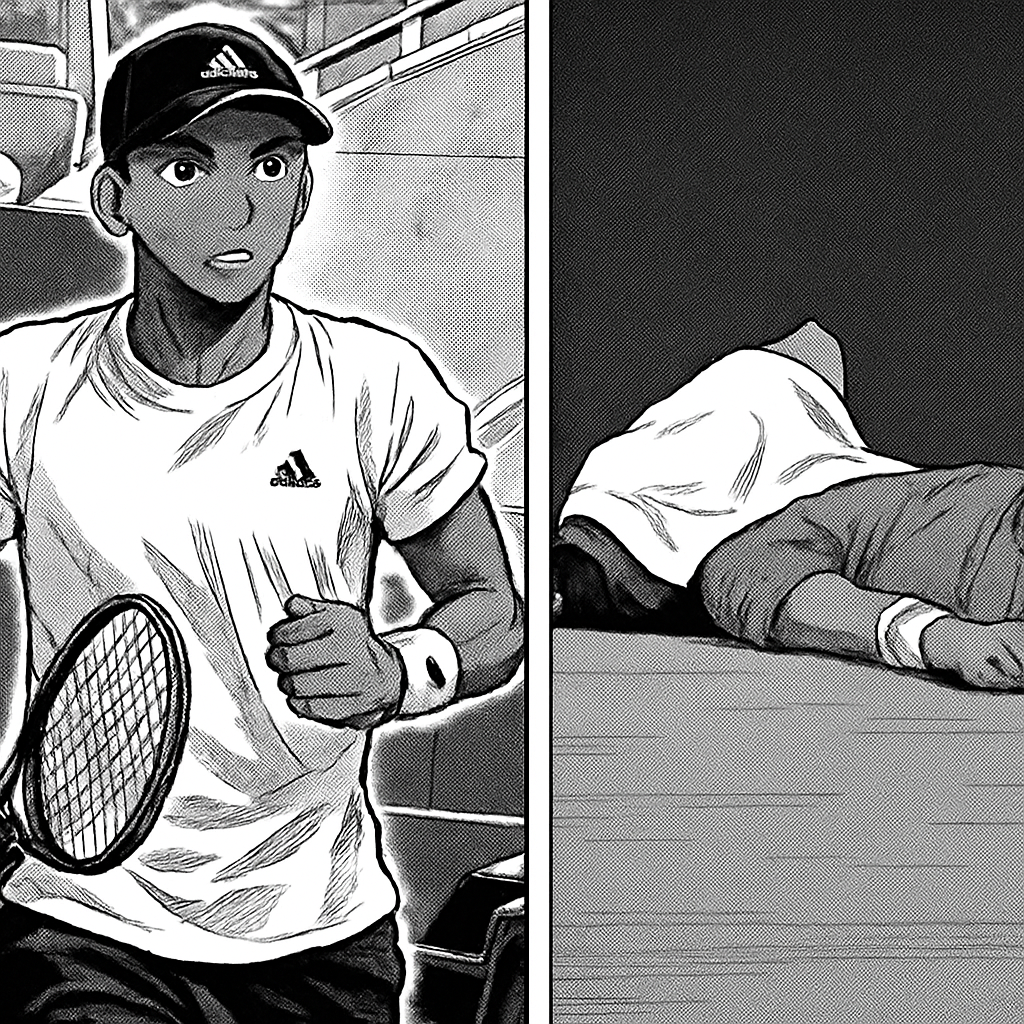CINCINNATI — The scorching conditions at the Western & Southern Open have turned the tournament into a battle of endurance, with multiple players collapsing or retiring due to extreme heat. Canadian star Felix Auger-Aliassime described the conditions as "like playing in an oven" after rushing to aid opponent Arthur Rinderknech, who collapsed mid-match.
Players Struggle in Relentless Heat
The tournament, held in Mason, Ohio, has seen temperatures soar above 90°F (32°C) with humidity levels making it feel closer to 100°F (38°C). The brutal conditions have forced several players to withdraw or require medical attention, raising concerns about player safety in extreme weather. "It's unbearable out there," said Auger-Aliassime after his match. "You feel like you can't breathe."
Rinderknech, a French qualifier, became the most dramatic casualty when he collapsed during his second-round match against Auger-Aliassime. The Canadian immediately rushed to his opponent’s side, helping him to a shaded area where medical staff administered fluids and cooling measures. Rinderknech later retired from the match, citing heat exhaustion.
Retirements and Medical Timeouts Pile Up
The tournament has seen an unusually high number of retirements and medical interventions due to the heat:
- Arthur Rinderknech – Collapsed mid-match vs. Auger-Aliassime (retired)
- Borna Coric – Withdrew before his match due to heat-related illness
- Danielle Collins – Required multiple medical timeouts in her match
- Alejandro Davidovich Fokina – Struggled visibly before retiring
Tournament organizers have implemented additional heat rules, including extended breaks between sets and extra cooling stations. However, players argue more needs to be done. "We’re pushing our bodies to the limit, and the conditions are dangerous," said Collins after her match.
Auger-Aliassime Calls for Change
Auger-Aliassime, who advanced to the next round after Rinderknech’s retirement, has been vocal about the need for better heat policies. "It’s not just about winning or losing—it’s about health. When you see players collapsing, something has to change," he said in a post-match interview.
The ATP and WTA have heat stress protocols, but players argue they are inconsistently enforced. Some tournaments allow for a 10-minute break if the Wet Bulb Globe Temperature (WBGT) exceeds a certain threshold, but the Cincinnati Open has not yet triggered this rule despite player complaints.
What is the Wet Bulb Globe Temperature?
The WBGT measures heat stress by accounting for temperature, humidity, wind speed, and solar radiation. Tennis tours use it to determine when extreme heat rules should apply. However, players like Auger-Aliassime believe the thresholds are too lenient. "The rules were made years ago—climate change is making things worse," he said.
Tournament Organizers Respond
In a statement, the Western & Southern Open acknowledged the challenging conditions but defended their safety measures. "Player welfare is our top priority. We are closely monitoring conditions and following all ATP and WTA guidelines," a spokesperson said.
Despite this, some players have called for matches to be rescheduled to cooler evening slots. "Playing at noon in this heat is brutal—why not move some matches?" asked Davidovich Fokina before retiring.
Conclusion: A Growing Concern in Tennis
As climate change leads to more frequent heatwaves, tournaments may need to rethink scheduling and safety protocols. The incidents in Cincinnati highlight the physical toll extreme weather takes on athletes. "This isn’t just about one tournament—it’s about the future of the sport," Auger-Aliassime emphasized.
With the US Open just weeks away, players and officials will be watching closely to see if further adjustments are made to protect competitors from dangerous conditions. For now, the message from players is clear: "No match is worth risking your health."

